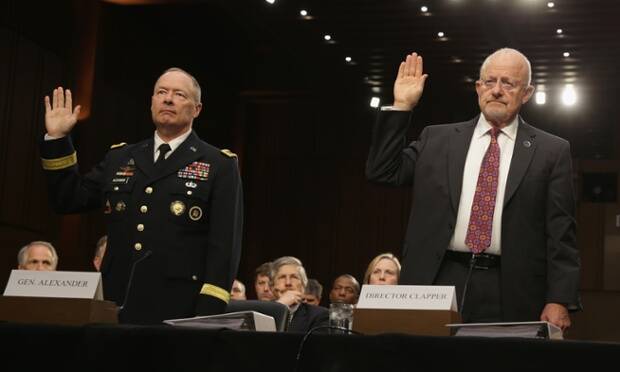“Everybody does it” is never a strong argument, whether the statement applies to evading taxes, cheating on school exams, stealing office supplies or eavesdropping on neighbors. For one thing, it’s untrue: Everybody does not do it. For another, it’s irrelevant.
But that is the argument made by the U.S. government these days. It’s the only argument the government can make, of course—that, and “because we can,” which is equally lame—and the fact that Europeans seem uninclined to let it rest there is heartening. With the United States looking a lot like the Soviet Union of yore in its embrace of a vast state security system that knows everything about everybody—including, it’s now reported, the pope—our problem-plagued democracy needs all the push back to repression it can get, both from people outside the country and within.
A report in the Italian news magazine Panorama that the National Security Agency (N.S.A.) spied on Cardinal Jorge Mario Bergoglio and other prelates before the recent conclave is being denied by the N.S.A., but N.S.A. denials of responsibility during the recent spy scandal have not proved completely trustworthy. The N.S.A. statement that it did not “target” the Vatican may need to be parsed and could indicate that it collected information on the Vatican without authorizing a special operation to do so.
If the allegations of surveillance are true, they deserve a more robust response from the Vatican than the recent statement that “We don’t know anything about this and in any case we don’t have any concerns about it.” What is the justification for the U.S. eavesdropping on the Vatican? There is none. Terrorism, the rationale for surveillance routinely trotted out by U.S. officials, is hard to argue in this case. If the Vatican isn’t concerned, it should be, not only to protect the integrity of its image, projects and mission, but because the evisceration of privacy, the blurring of the line between public and private, is the hallmark of totalitarianism. The Catholic Church’s history during the Inquisition should make it more aware of the corrosive effects of mass surveillance on both those spying and those spied upon, more sensitive to the abuse of freedom, not less.
An apology, a sincere action of contrition and a pledge not to repeat its offences are in order from the United States. Humility has never been a U.S. virtue, but what a wonderful thing if it were to become one. Diverting the money currently spent scrutinizing millions of people’s telephone calls and email to education, infrastructure, health care or protection of the environment would all be a more worthwhile expenditure of U.S. funds and could certainly include building defenses against other countries surveilling us the way we do them. Yes, some other countries spy too—and we all probably know who they are—but a first step towards changing that is curbing the culture of impunity in which the the world’s biggest (or one of the biggest, certainly) spy agency operates. If the United States is reined in, it will be more likely to force restrictions on others. Public outrage from U.S. citizens, from the U.S. Congress, from other countries and even the Vatican needs to force a change in business as usual at the N.S.A.








